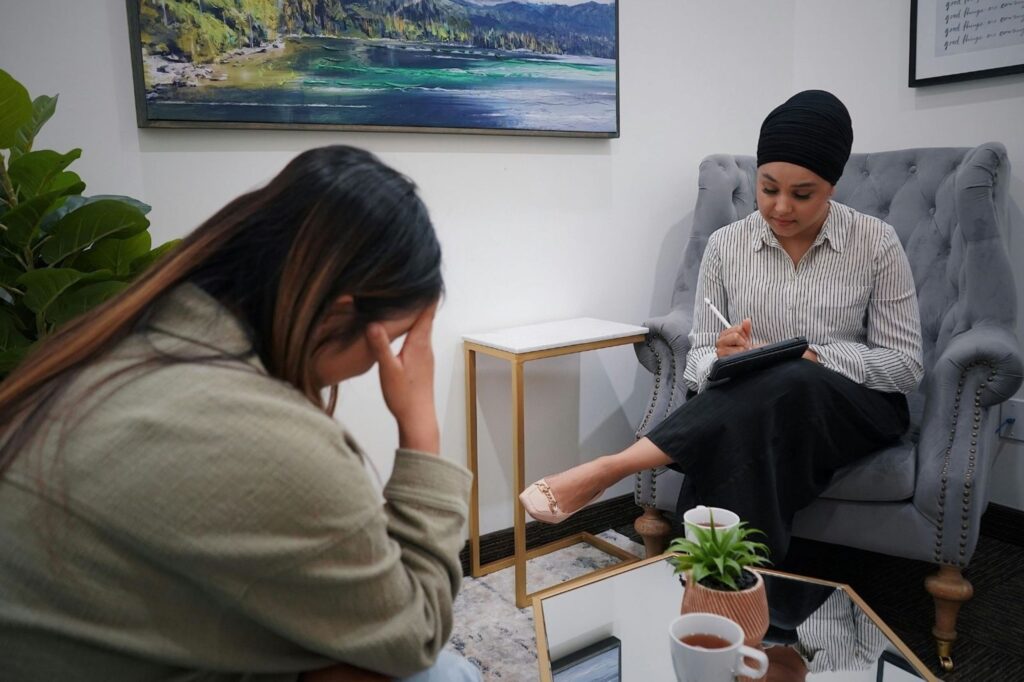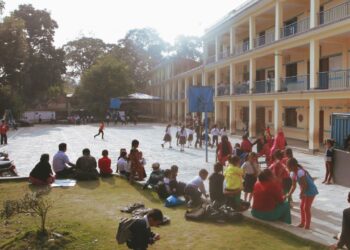Morocco’s Gen Z generation is revolutionizing mental health awareness through unprecedented openness and activism. Furthermore, young Moroccans aged 18-24 demonstrate higher awareness about mental health than any previous generation. Moreover, this demographic shift comes as Morocco faces significant challenges including 35.8% youth unemployment and limited access to psychological support services. Therefore, understanding how Gen Z approaches mental health helps society build better support systems. Additionally, recent protests demanding improved healthcare and education highlight youth prioritizing wellbeing alongside economic opportunity. Indeed, breaking traditional stigma around therapy and emotional wellness represents Gen Z’s most significant cultural contribution. Consequently, this comprehensive guide examines mental health awareness among Morocco’s younger generation.
Understanding Gen Z’s Mental Health Landscape
Morocco’s Gen Z population faces unique mental health challenges shaped by economic uncertainty and social transformation. First, youth unemployment reached 35.8% in 2025, with more than half of Morocco’s population under 35. Additionally, approximately one quarter of youth remain NEET (Not in Education, Employment, or Training).
Moreover, a nationwide study of 1,183 young Moroccans aged 18-24 revealed that engaged youth reported higher awareness about mental health and more positive attitudes. Furthermore, constant connectivity through social media creates both community and overwhelm. For instance, 43% of young Moroccans aged 18–29 spend three to five hours daily on social media platforms.
Meanwhile, 6 in 10 Gen Z globally report feeling overwhelmed by news and events, with overwhelm eroding wellbeing and empowerment. Consequently, Morocco’s Gen Z navigates complex pressures requiring robust mental health support systems. Thus, understanding these challenges represents the first step toward creating effective interventions.
Breaking Mental Health Stigma Through Activism
Morocco’s Gen Z demonstrates remarkable willingness to discuss mental health publicly, challenging traditional cultural silence. First, the GenZ212 movement mobilized hundreds of thousands demanding better healthcare and education through platforms like Discord, Instagram, and TikTok. Additionally, their protests explicitly connected physical and mental wellbeing to government accountability.
Moreover, Gen Z is more fluent in mental health discourse than any generation before them, actively breaking silence around emotional wellness. Furthermore, young Moroccans use social media to share personal mental health journeys, reducing stigma through authentic storytelling. For example, discussions about therapy, anxiety, and depression now appear regularly on Moroccan TikTok and Instagram.
Meanwhile, celebrity support amplifies these conversations—football stars like Yassine Bounou and actors like Rachid El Ouali publicly endorsed youth demands for healthcare that preserves dignity. Consequently, mental health awareness becomes mainstream rather than taboo among younger generations. Thus, Gen Z’s openness creates cultural shifts benefiting all Moroccans.

Access to Mental Health Support in Morocco
Despite growing awareness, Morocco’s mental health support infrastructure remains inadequate for demand. First, in rural areas, residents often lack access to healthcare services with 20% of the population living more than 10 kilometers from primary care facilities. Additionally, mental health services receive even less investment than general healthcare.
Moreover, private therapy remains financially inaccessible for most young Moroccans facing unemployment or underemployment. Furthermore, trained mental health professionals concentrate in major cities like Casablanca and Rabat, leaving rural youth underserved. For instance, stigma within families sometimes prevents young people from seeking therapy even when available.
Meanwhile, the government’s 2026 draft finance bill allocated $13 million to health and education sectors, creating 27,000 new jobs. Consequently, these reforms may expand mental health service accessibility gradually. Thus, advocacy continues pushing for comprehensive psychological support systems nationwide.
Real Voices from Morocco’s Gen Z
Youssef Bennani, University Student, Meknass
“My generation talks openly about anxiety and depression in ways our parents never could. When I started experiencing panic attacks during exams, I felt ashamed initially. Then classmates shared similar struggles through our WhatsApp group, normalizing these experiences completely.”
“Finding affordable therapy proved challenging on my student budget without family support. I discovered online support groups connecting Moroccan youth facing similar mental health challenges. Additionally, some NGOs offer free counseling sessions specifically for students and unemployed youth.”
“The GenZ212 protests made me realize that demanding better mental health services isn’t selfish—it’s necessary. Furthermore, our generation understands that economic opportunity and psychological wellbeing connect inseparably. Now I volunteer with peer support initiatives helping other students access resources. Indeed, we’re building the support systems previous generations lacked completely.”
Zero Waste Swaps: Morocco Home Guide 2025
Zero waste living revolutionizes how Moroccan households approach daily consumption. Moreover, embracing sustainable practices doesn't demand overwhelming lifestyle changes. Indeed,...
School Break Policy: Morocco’s New Rule 2025
Morocco's Ministry of Education has introduced a new school break policy affecting students nationwide. Furthermore, the directive requires students to...
Fall Produce: 12 Healthy Fruits and Veggies
As the Moroccan summer heat fades and autumn arrives, local souks burst with seasonal abundance. Fall brings a spectacular harvest...
Surf, Sand and Soul: The New Moroccan Beach Lifestyle
Morocco’s coastline is undergoing a vibrant transformation. Once celebrated mainly for its imperial cities and deserts, the country’s Atlantic and...
How Schools and Universities Support Mental Health
Educational institutions increasingly recognize their role in supporting Gen Z mental health. First, 74% of Gen Z globally believe schools should help young people manage stress, anxiety, and overwhelm, with 6 in 10 reporting schools positively impact their mental health management. Additionally, some Moroccan universities now offer counseling services and peer support programs.
Moreover, higher education correlates with increased mental health engagement, with educated youth showing more positive attitudes toward psychological wellness. Furthermore, student organizations create safe spaces for mental health discussions and awareness campaigns. For example, World Mental Health Day events at universities feature panel discussions, art therapy workshops, and stress management training.
Meanwhile, teacher training increasingly includes mental health literacy and crisis intervention basics. Consequently, educators better identify struggling students and connect them with appropriate support. Thus, educational settings become crucial environments for building mental health awareness and resilience.

Digital Resources and Online Support Communities
Morocco’s tech-savvy Gen Z leverages digital platforms creating virtual mental health support networks. First, WhatsApp groups, Instagram pages, and Discord servers provide anonymous spaces for sharing experiences and resources. Additionally, these platforms reduce geographic barriers connecting rural youth with urban support systems.
Moreover, international mental health apps and resources become accessible despite limited local infrastructure. Furthermore, Moroccan content creators produce Arabic and Darija mental health education through TikTok and YouTube. For instance, psychologists and counselors offer free webinars addressing common Gen Z concerns like exam anxiety, family pressure, and career uncertainty.
Meanwhile, online therapy platforms slowly enter the Moroccan market offering more affordable alternatives to traditional counseling. Consequently, digital resources democratize mental health support for financially constrained youth. Thus, technology bridges gaps in Morocco’s developing mental health infrastructure.
Conclusion: The Future of Mental Health in Morocco
Morocco’s Gen Z generation is fundamentally transforming mental health awareness through activism, openness, and community building. Their willingness to demand better healthcare while breaking cultural stigma creates unprecedented opportunities for societal change. Moreover, from protests demanding improved services to online support networks, young Moroccans demonstrate remarkable resilience and innovation.
Understanding Gen Z’s mental health needs requires recognizing connections between economic opportunity, education access, and psychological wellbeing. Additionally, expanding therapy services, training professionals, and reducing stigma remain urgent priorities. Therefore, government, educational institutions, and civil society must collaborate supporting youth mental health comprehensively.
Furthermore, Gen Z’s leadership in these conversations proves that young people aren’t just beneficiaries of mental health services—they’re active architects of solutions. Indeed, their advocacy ensures Morocco’s mental health infrastructure evolves meeting contemporary needs. Support youth-led initiatives, educate yourself about mental health, and join conversations breaking down remaining stigma barriers.
Need mental health support? Contact local university counseling services, join online Moroccan mental health communities, or explore NGO programs offering free or low-cost therapy for youth.















Discussion about this post